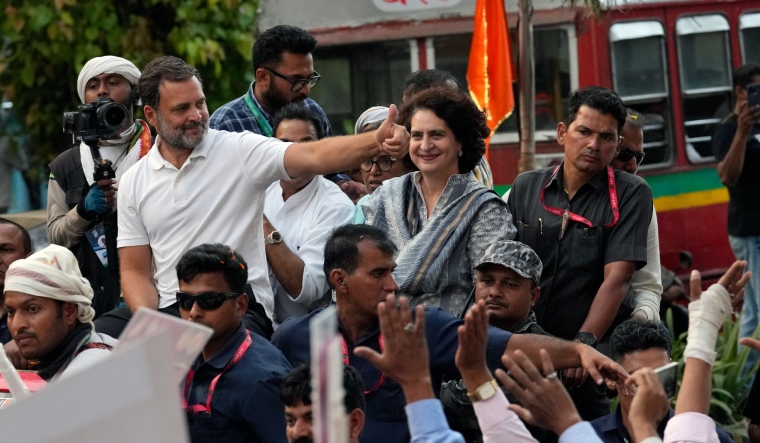Ahead of what they have described as a do-or-die battle, the opposition I.N.D.I.A. has struggled to present a united face due to various reasons including desertions and the seemingly endless discussions on seat sharing. Ahead of the Lok Sabha elections, the anti-BJP bloc also faces the stiff challenge of finding a narrative strong enough to counter the Hindutva-plus messaging.
Around the same time last year, the opposition parties had embarked on a difficult and ambitious journey to find common ground and mount a joint fight against Prime Minister Narendra Modi and the BJP. The endeavour aimed to ensure that the opposition minimised the splitting of votes by entering into seat-sharing arrangements. The idea was to field a common candidate representing the opposition alliance to take on the BJP in around 400 seats. A year later, this objective has proved to be a struggle.
The biggest blow to the endeavour was the exit of Bihar Chief Minister Nitish Kumar, who had mooted the idea of the opposition parties coming together on a common platform and had even hosted the inaugural meeting of the alliance in Patna. The main architect of the I.N.D.I.A. alliance's decision to go back to the BJP-led NDA came as a huge setback to the opposition bloc. Another ally, the Rashtriya Lok Dal, also switched sides, crossing over to the NDA and weakening the opposition alliance in the electorally crucial Uttar Pradesh.
There was unrest in the alliance over the Congress undertaking the Bharat Jodo Nyay Yatra so close to the elections, and some allies openly criticised the Rahul Gandhi-led cross-country journey, saying it was a time to prepare for elections. The Trinamool Congress stayed away from the yatra as it passed through West Bengal, and has declared it will not be in alliance with the Congress. The Mamata Banerjee-led party is also unlikely to participate in the I.N.D.I.A. rally that will be held in Mumbai on March 17 after the culmination of the Congress yatra. It was during the course of the yatra that Nitish switched back to the NDA and so did the RLD. In West Bengal, the Congress is now looking to partner with the Left once again.
Seat-sharing arrangements have so far been finalised in Tamil Nadu, where the grouping is led by the DMK, and Uttar Pradesh, where the Samajwadi Party is the leading partner. While the Congress and AAP decided to split seats in Delhi, they will be contesting against each other in Punjab. Seat-sharing talks are yet to be finalised in Maharashtra, Jharkhand and Bihar.
There is the mammoth challenge before the opposition of countering the popularity of Modi and offering an alternative to his leadership. There is also the difficult task of dealing with the BJP's highly successful Hindutva-plus agenda, which is now bolstered by the inauguration of the Ram Temple and the notification of the rules for implementation of the Citizenship Amendment Act. Opposition leaders though insist the elections will be more about the people's issues and their economic and social distress.
There is little time left though for the I.N.D.I.A. alliance to get its act together.



